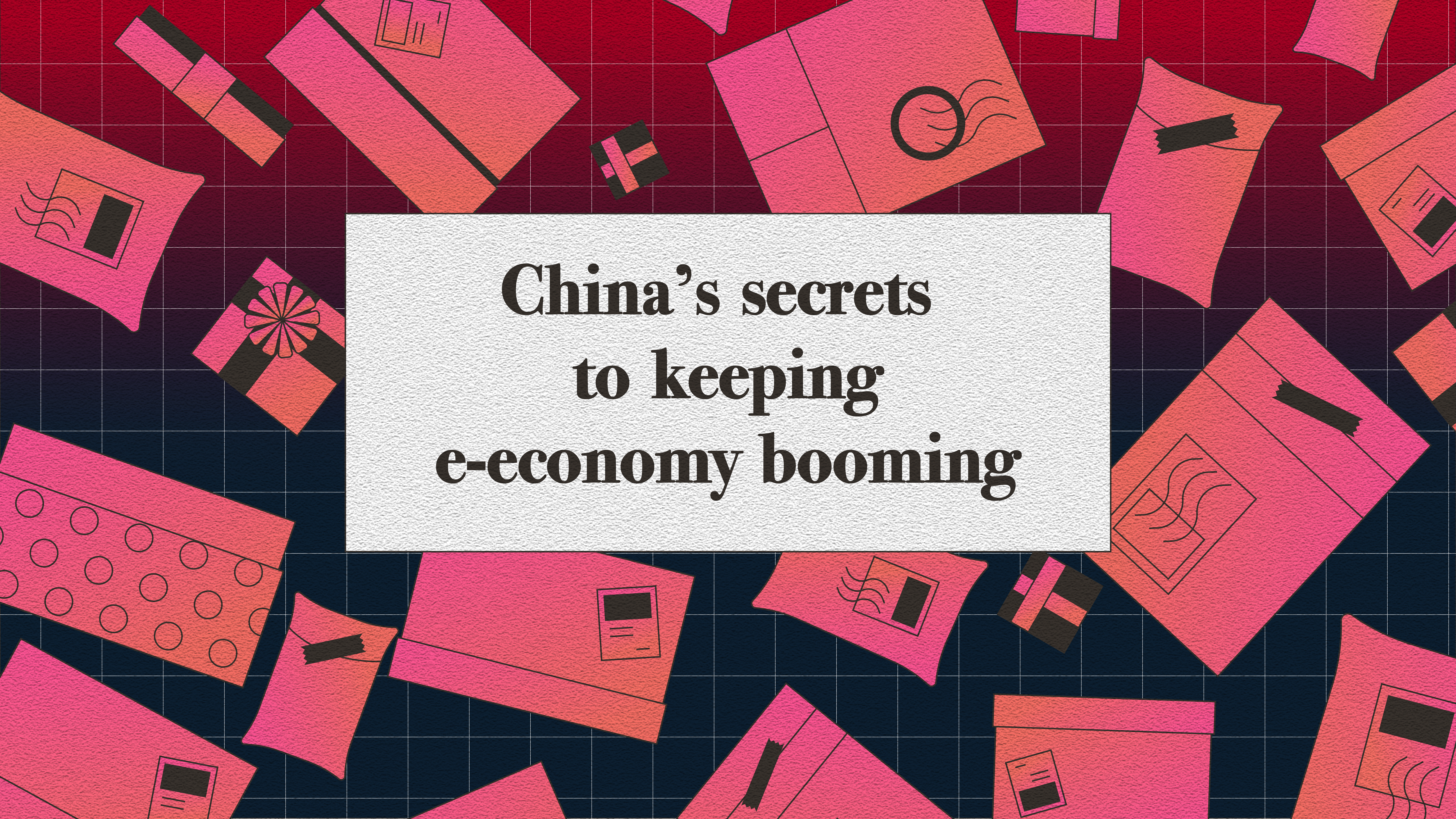04:19

Editor's note: In a post-pandemic world, a COVID-19 vaccine is like the light at the end of the tunnel. At the same time, China's strong economic recovery offers hope to the world. How did the Chinese economy manage to rebound amid a raging pandemic? Data Speaks is a six-episode series that analyzes China's economic growth from different perspectives. The first episode looks at the country's booming e-commerce market.
In November 2019, Kim Kardashian West collaborated with China's top-selling celebrity Viya Huang in a livestream on Tmall, a shopping website owned by Alibaba. Within a few minutes, her entire stock of 15,000 bottles of perfume were sold.
Kardashian got 30,000 views on her own livestream channel on Tmall while Viya's channel drew more than 12 million viewers.
It seems that on e-commerce, it's Kardashian who is trying to keep up with the Chinese.

It's no secret that China's online shopping market is highly developed and the COVID-19 pandemic is promoting the market even further. But will this momentum continue when lockdowns are lifted and the virus is gone?
The response is clearly yes. Judging by data from the National Bureau of Statistics of China, in fact, it's expanding even faster.
In the first half of 2020, online retail sales surged 7.3 percent compared to the same period the year before, to reach 5.15 trillion yuan. In the next six months, as the nation gradually reopened, an additional 6.61 trillion yuan in sales was realized. That put the annual growth rate for online retail sales at 10.9 percent.
Around the globe, people are moving online due to the pandemic. According to global traffic analysis by Mapp, online orders increased by 88 percent by the end of March 2020, compared to the beginning of the year.

But as the world slowly adjusts to the COVID-19 shock, countries like the United States have already seen a dip in e-commerce sales as brick and mortar retailers open for business again.
So what's China's secret to maintaining growth in its e-economy, even after stay-at-home mandates ended?
Since 2013, China has been the world's largest online retail market. Having put in place one of the strictest home quarantine regimes in the world for COVID-19 though, China benefited from a solid base of online consumption as people sheltered in place at the start of the epidemic.
More online selling systems were built and new accounts were registered. By June 2020, 79.7 percent of Chinese internet users said they had bought something with just a click. The epidemic has undoubtedly accelerated the move to online shopping and there is no going back.
China is also picking up the pace in new trends like new market strategies, for which livestream is the perfect example, and the growing popularity of other products besides normal consumption items. Data shows a growing trend for Chinese people in buying more online courses, games and shows. China's mobile game market in 2020 raked in an unprecedented 209.68 billion yuan, an increase of 30 percent over 2019.

But it's crucial to take a step back from the hustle and bustle to get down to the nitty-gritty behind this boom: China's digital and logistical infrastructure.
China's 900 million internet users can click and buy whenever they want through a mobile phone. By March 2020, there were already 170 million online shoppers from rural areas. Behind this number is China's cheap and convenient internet service and commitment to keeping people online.
At the receiving end is China's express delivery network. In 2020, a total of 83 billion deliveries were made, or more than 200 million a day. Not only that, the cost of delivery is much lower than in countries like the U.S. And the efficiency of the system is boosted by China's advancing big data technology.
People are showing more confidence in e-commerce than the offline economy and that is expected to continue for years to come. It's safe to say that the online retail sector is poised for more growth, even after the epidemic.
(If you want to contribute and have specific expertise, please contact us at opinions@cgtn.com.)

